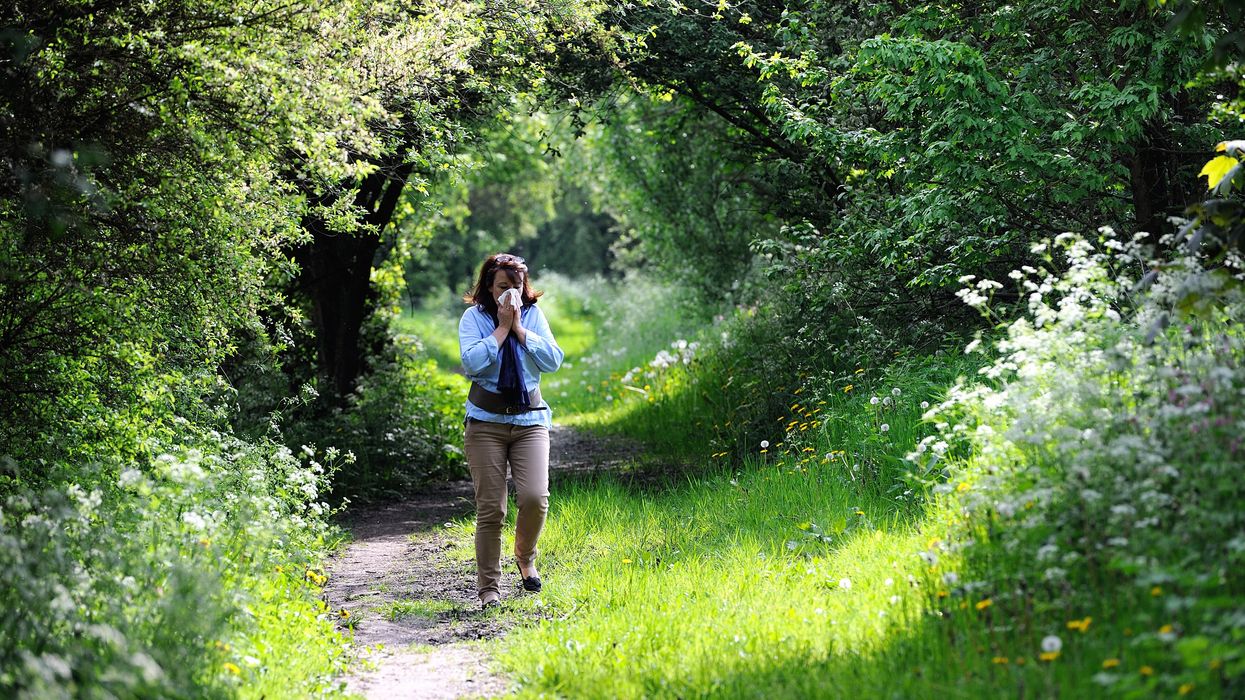Alex Daniel
Jun 15, 2023

Experts have warned high pollen counts could last well into July, piling misery upon millions of Brits
PHILIPPE HUGUEN/AFP via Getty Images
Brits might be basking in the sun this June – but everything comes with a price. For hay fever sufferers, that means high pollen counts.
Experts are predicting that things are worse than ever this year, as grass pollen peaks during this abnormally hot June and July. Some have even warned of a so-called “pollen bomb” over the summer months.
While a pollen bomb is not an official term used by allergists, the effects are very real, as any hay fever sufferer will tell you.
Sign up to our free Indy100 weekly newsletter.
Coughing, sneezing, itchy eyes and a runny nose are all common symptoms, turning what should be a glorious heatwave into a miserable month for many in the UK.
Pollen bombs happen when trees and grass release millions of grains of pollen in a short period of time, made worse by strong gusts of wind.
Sometimes, they stir up enough pollen to create a thick haze of dust, according to Claritin, which manufactures hay fever tablets.
These events are often exacerbated by an unusually long winter followed by a windy, dry, hot early summer period. Sound familiar?
According to the Met Office, pollen counts are set to remain “very high” or “high” – the two highest ratings – well into next week all across the UK.
Of course, millions of hay fever sufferers will know that the last few weeks have already been difficult – but the bad news is high pollen counts could last well into July.
“The grass pollen season has well and truly started in England and Wales and peaks in the UK in June and July,” allergens expert Max Wiseberg told the Daily Mirror.
“Grass pollen causes very unpleasant symptoms in the sufferer including sneezing, a runny nose, a stuffed up nose, itchy and watery or streaming eyes, nasal congestion and a general stuffed up feeling in the nose and throat.”
To make matters worse, there is also such a thing as “thunder fever”.
While research is ongoing, it is thought that thunderstorms have the potential to increase hay fever symptoms more still.
That means that while the weather might break at some stage in the next few weeks, the sneezing could persist.
Looks like it’s time to stock up on the antihistamines.
Have your say in our news democracy. Click the upvote icon at the top of the page to help raise this article through the indy100 rankings.
Top 100
The Conversation (0)













